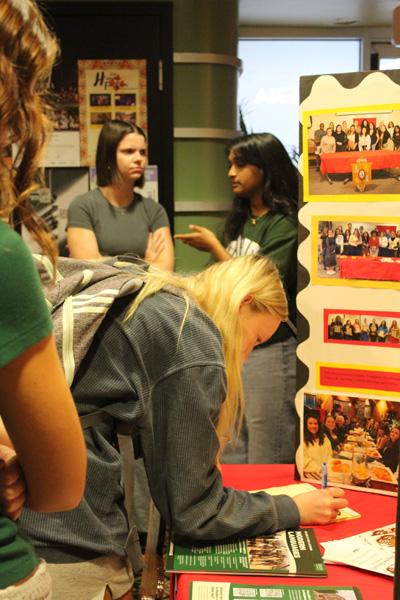Highlights of the Spanish M.A. Program
Attend Conferences
Students are encouraged to attend and present their work in regional, national and international conferences. Funding available.
Study Additional Languages
Students are encouraged to study additional languages. Options include: Italian, German, French, Arabic, Chinese, Japanese, Swahili, Akan, Hindi, Indonesian, Malaysian, Thai, and Wolof). Students appointed with a TAship can enjoy tuition waiver for these programs as well.
Gain Global Experience through International Internships
Our international internships are more than just work experience — they're life-changing opportunities to build your career while immersing yourself in a new culture. The School of International Studies and Languages connects students with hands-on international internships that provide real-world experience in business, health care, education, diplomacy, engineering, international development, and beyond.
Join Organizations
FLES (Foreign Languages in Elementary Schools)
Students interested in exploring teaching as a career path are encouraged to volunteer with our FLES outreach programs.
Sigma Delta Pi
Students can join our award-winning chapter of Sigma Delta Pi, the National Collegiate Hispanic Honor Society. Sigma Delta Pi organizes cultural events leads community engagement (such as the Hispanic Film Series), and supports camaraderie and community building.
Active members can apply for one grant of up to $2,000 to support travel abroad to do research related to Hispanic Studies.
Ohio University Translation Club
The Ohio University Translation Club organizes guest lectures, workshops, and professional projects to explore the art and practice of translation and interpreting. Members gain hands-on experience through real-world projects—such as interpreting for visiting delegations and translating materials for the university, while fostering cross-linguistic dialogue and collaboration.


